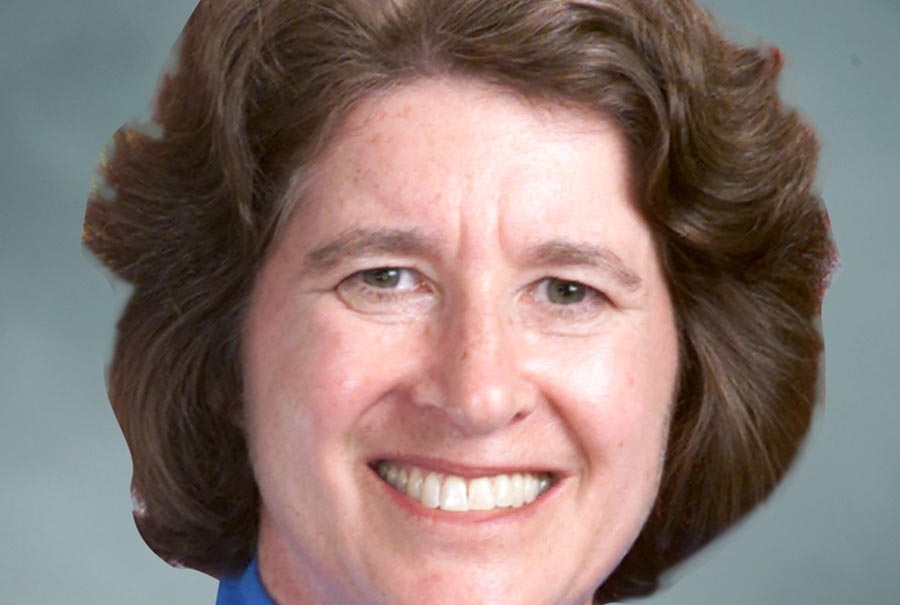New Book Shines Light on Mammography Controversy
NEW YORK (June 12, 2006) — The subject of changing public advice over the years, mammography and the controversy over its use continue to cause confusion in the minds of many women. A new book for lay readers entitled "Understanding the Mammography Controversy: Science, Politics, and Breast Cancer Screening" (Praeger Press), by women's health expert Dr. Madelon L. Finkel of Weill Medical College of Cornell University, provides a comprehensive guide to mammography, the mammography controversy and breast health.
The book directly addresses the still-controversial issues, such as deciding when is the "right" time to have a mammogram, what is the "right" age for mammography (the body of evidence indicates a benefit for women aged 50 to 69) and whether mammography is useful at all (it is). While not perfect, mammography is the only population-based breast cancer screening method that has been shown to actually save lives.
"It's no wonder women are confused about mammography. Sensational media stories tout the latest scientific studies, often contradicting previous findings. Above all, women need to separate the facts from the myths in order to make informed decisions about their breast health," says Dr. Finkel, professor of clinical public health and director of the Office of Global Health Education at Weill Cornell Medical College.
This book includes a timeline that details the disagreement within the scientific community and changing public advice on mammography over the years.
"The mammography debate is still not yet settled. While the latest research shows that mammography can save lives, there is still no overall consensus on what age mammogram screening should be recommended, and even whether the benefits of mammogram screening outweigh the risks in the first place," says Dr. Finkel." Each woman must consider her personal risk factors, and in consultation with her doctor, decide when and how frequently mammography should be scheduled."
The book offers readers practical information, including how to give a breast self-exam, how to communicate with one's doctor, a list of support groups and organizations for breast cancer patients, and resources for clinical trials.
"Most women will not develop breast cancer in their lifetime, and for those who do, it's no longer a death sentence. Thanks to public awareness, screening, research and new treatment options, it has become a treatable, chronic illness," says Dr. Finkel.
"Understanding the Mammography Controversy: Science, Politics, and Breast Cancer Screening" received the highest rating from BookList. The book is dedicated to the author's mother, who died of breast cancer.
Dr. Madelon Finkel
Dr. Madelon Finkel has been involved in epidemiologic research and health-care policy studies for more than two decades. Her research has been focused on such women's health issues as teenage sexual behavior and hormone replacement therapy.
Dr. Finkel received an M.P.A. and Ph.D. in epidemiology and health services research from NYU. In addition to her titles at Weill Cornell Medical College, Dr. Finkel also holds the rank of professor of research in medicine at SUNY Stony Brook, and was a visiting professor at the School of Public Health, University of Sydney (Australia) in 2004. She is a member of the American College of Epidemiology, an advisor to the American Council on Science and Health, and a charter member of the Academy of Benefit Authors of the International Foundation of Employee Benefit Plans. Dr. Finkel was awarded the highest teaching honor at Weill Cornell, the Excellence in Teaching Award, in 2000 and 2005.
The Joan and Sanford I. Weill Medical College
The Joan and Sanford I. Weill Medical College — located in New York City — is committed to excellence in research, teaching, patient care and the advancement of the art and science of medicine. The Medical College, which is a principal academic affiliate of NewYork-Presbyterian Hospital, offers an innovative curriculum that integrates the teaching of basic and clinical sciences, problem-based learning, office-based preceptorships, and primary care and doctoring courses. Physicians and scientists of Weill Cornell Medical College are engaged in cutting-edge research in such areas as stem cells, genetics and gene therapy, geriatrics, neuroscience, structural biology, cardiovascular biology, AIDS, obesity, cancer and psychiatry — and continue to delve ever-deeper into the molecular basis of disease in an effort to unlock the mysteries behind the human body and the malfunctions that result in serious medical disorders. Weill Cornell Medical College is the birthplace of many medical advances — from the development of the Pap test for cervical cancer to the synthesis of penicillin, the first successful embryo-biopsy pregnancy and birth in the U.S., and most recently, the world's first clinical trial for gene therapy for Parkinson's disease. Weill Cornell's Physician Organization includes 650 clinical faculty who provide the highest quality of care to patients.
Leslie Greenberg
leg2003@med.cornell.edu

